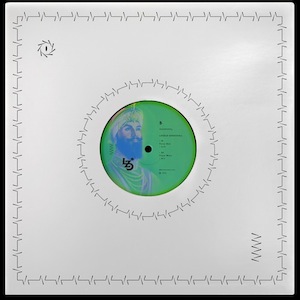Laszlo Dancehall LZD II
Laszlo Dancehall’s debut EP, Gave Up, seemed unjustly overlooked in most quarters when it was […]

Laszlo Dancehall’s debut EP, Gave Up, seemed unjustly overlooked in most quarters when it was released in May of this year. The collaboration between rising UK house denizen Leon Vynehall and comparative veteran Christian Sibthorpe (best known for his work as A1 Bassline and who recently began releasing tunes as Christian Piers) might not have seemed all that different from the garage-inflected house that’s been blowing up in the UK all year, but it stood out from the waves of ostensibly similar music with its messy, infectious rhythms and hazy production. And, much like Vynehall’s own recently released Open EP, Laszlo Dancehall’s LZD II delivers a serviceable three-track selection of wonky, synth-driven garage house, with its most interesting moments being its most abstract and experimental.
As was the case with Gave Up, LZD II has been released via George FitzGerald’s ManMakeMusic label, and the EP’s first track, “Whip What,” has the kind of snappy, big-room shuffle that the label is justly acclaimed for. Underpinned by a sturdy 4/4, and featuring a kinetic organ line alongside plenty of old-school piano flourishes, the tune has a lot in common on the surface with the house/garage hybrids being turned out the likes of Bicep, Citizen, and FitzGerald himself. Unlike these producers though, Laszlo Dancehall has a subtly lopsided approach, one which treats its busy, intricate rhythms as a set of interlocking parts, perfectly balancing texture and groove. If “Whip What” is the most successful iteration of this formula on the EP, “Fatty Que” feels a little too, well, formulaic. Recalling classic piano house with its sturdy organ line and busy rhythms, the track meanders and ultimately lacks a compelling sense of its own dynamics. More interesting is the final number, “Flute Worx,” which scales back the prior tracks’ peak-time energy and instead offers moody, deconstructed analog house that wouldn’t sound out of place on the L.I.E.S. label. Laszlo Dancehall is one of the most interesting entities in the UK’s current revivalist strand of house, a trend that unfortunately veers towards monotony far too often. LZD II isn’t entirely immune from this, but the record shows a promising tendency to push boundaries exactly where they need to be pushed.

